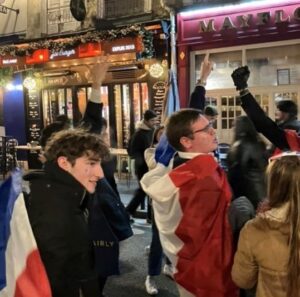“Non, je ne regrette rien”: Josh’s Experience at SciencesPo
Josh studies International Relations and studied at SciencesPo in Paris during semester one of his third year. Here is what he has to say about his experience.
My name is Josh Traynor, and in semester one I studied at the Paris Institute of Political Studies (commonly known as Sciences Po), the second-best school for politics in the world, as part of the School of International Relations Abroad programme. I had the most remarkable experience. Walking down the same corridors that President Macron and four of his predecessors once did, I considered it a real privilege to have been able to attend this prestigious institution. Despite knowing places would be limited, I took the chance and applied in second year – and “Non, je ne regrette rien.”
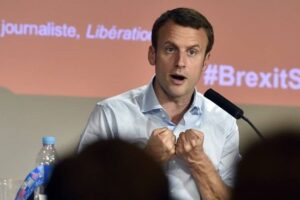
The unique academic model at Sciences Po made the learning experience both enjoyable and engaging. At St Andrews, I have treasured the tutorial experience and the chance to constructively debate and exchange ideas on the weekly material with my classmates. With its focus on combining academics and real-world practice, Sciences Po’s assessment method does not centre around essays and exams. It also incorporates oral presentations (or exposés), press reviews, and group projects. This enables students to hear different perspectives and have their own arguments subjected to rigorous scrutiny. As a St Andrews student, though, your work will have an extra edge as many exchange students have not learned IR theory before and in France it is usually taught at Master’s level.
Admittedly, the workload is quite challenging with 12 hours of contact time each week and therefore planning is of paramount importance. While you are required to take two modules at St Andrews worth 15 ECTS credits each, you need to take two core courses at Sciences Po worth 5 credits and four seminars worth 5 credits to obtain the necessary 30 credits overall. Taking six classes, you will cover a wide range of issue areas—from Russian foreign policy to the politics of disease in my case—but I found that this drove my intellectual growth and curiosity.
Paris is a major diplomatic centre, constantly buzzing with high-level ministerial visits and international conferences, leading some to coin it the ‘capital of the world.’ And world leaders are keen to be seen at Sciences Po. During my time there, I attended speeches delivered by the President of Colombia, the leader of the democratic opposition in Belarus, Pakistan’s Minister for Foreign Affairs, and France’s head of counterterrorism. I was lucky enough to have been able to question the Prime Minister of Barbados on COP26. With my Lithuanian roots, I was also pleased to have met—and got a quick selfie with—the Prime Minister of Lithuania. All these visitors mean it is not uncommon that you have to wait five minutes after leaving class to allow bodyguards to escort VIPs out and for the police motorbikes to lead convoys out of the trendy Saint-Germain-des-Prés neighbourhood.
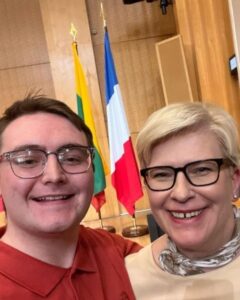
There are also many opportunities to pursue your interests outside of Sciences Po. For example, I attended President Macron’s speeches and conversed with former President Hollande in a café one evening in December. My friend Lenno and I got invitations to the Paris Peace Forum, where I spoke to the President of the Swiss Confederation, the Prime Minister of Kosovo, and the French Minister for Europe. With the President, I mentioned the excellent work of the Swiss Society recently founded at our university; I extended an invitation to the Prime Minister to visit Glasgow (our best city!) as he had not yet visited Scotland; and I thanked the Minister for her efforts to strengthen the Auld Alliance between Scotland and France. In addition, I was able to visit the ministries of education, justice, defence, and foreign affairs. At the Quai d’Orsay, I viewed the original Final Act of the Vienna Congress, which was the first multilateral treaty, as well as the original German ratification of the Treaty of Versailles. It goes without saying that if you are a history buff, Paris is the place for you.
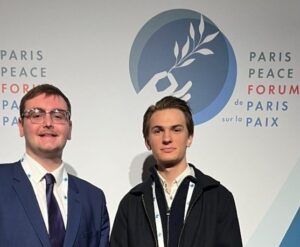
In my free time, I got to know my neighbourhood Denfert-Rochereau, went for walks in the well-manicured Jardin du Luxembourg, and tried out French cuisine – and tried to improve my French speaking skills. I dined at the oldest café in the city where Benjamin Franklin forged the alliance between the U.S. and France, and where Napoleon was forced to leave his hat as collateral having not had enough to pay for his dinner!
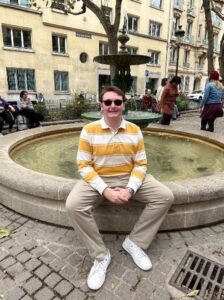
I would recommend upcoming exchange students do the Sciences Po welcome programme. It costs €250, but it allowed me to find my bearings in the city and meet like-minded people from all around the world: Belgium, Germany, Spain, Canada, the United States, Mexico, Japan, and Australia. Most of the friends I spent the semester with I had first met during the programme. The social life, and moreover, the nightlife, were unmatched. At the end of the semester, I invited everyone I had met to come together to watch France in the World Cup. This nicely rounded off my time in the capital, and I somehow managed to find myself at one point leading the French in “La Marseillaise”, the national anthem, on the street following their victory in the game. These are memories I will cherish forever.
